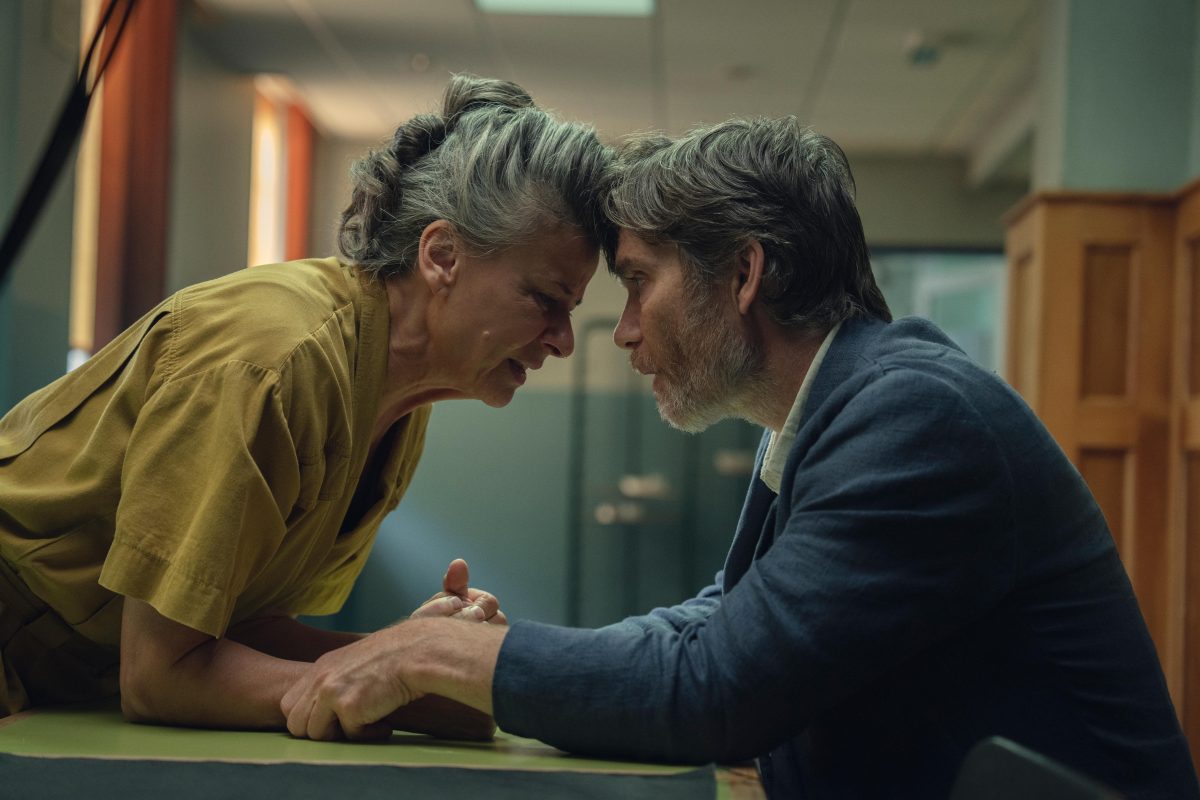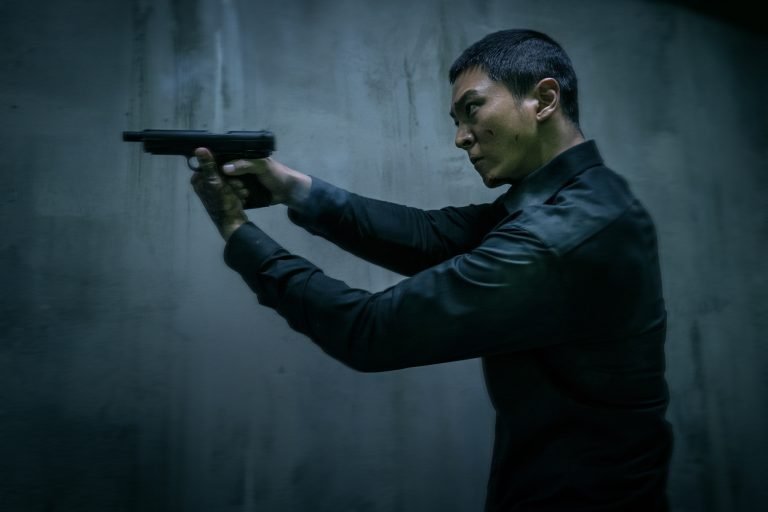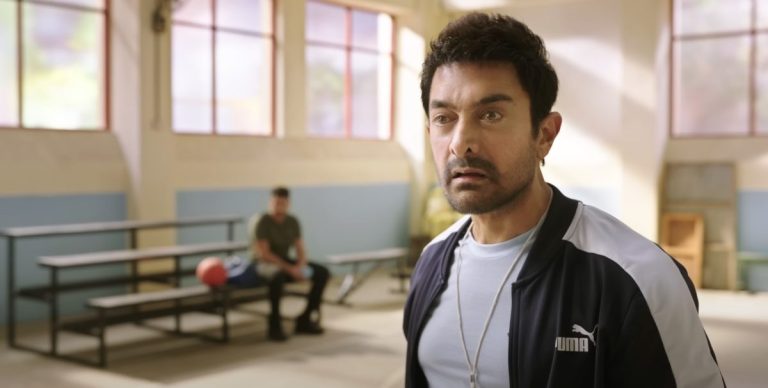“Steve” (2025) is the latest collaboration between the newly minted Academy Award winner Cillian Murphy and director Tim Mielants, whose previous work together on the Irish historical drama “Small Things Like These” will certainly be regarded as one of the decade’s most woefully underappreciated gems.
The delicate, moody adaptation of Claire Keegan’s acclaimed novel moved at such a measured pace that its moments of catharsis and revelation hit like an emotional thunderstorm. “Steve” shares the same compassion and curiosity about the unaccounted-for and disregarded members of society, but differs significantly in its style; with its brash, assaultive approach, “Steve” transports its audience into the midst of a decaying situation.
“Steve” is hardly the first film to address the challenges met by youths deemed “troubled” by a society not willing to provide them with adequate professional help. Still, it lacks the finger-wagging moral haughtiness of films like “Lean on Me,” or the inspirational linearity of “Finding Forrester.”
“Steve” may have a great deal of admiration for both the protagonist and the silent class of outstanding educators within his field, but it offers no degree of lionization or easy solutions. Pointing out an issue isn’t as helpful as solving one, and to the credit of “Steve,” it isn’t a film that revels in its own misery. While the confinement of its approach does result in some narrative unevenness, it’s a bold attempt to find tranquility within a situation spiraling out of control.
Murphy stars as the titular headmaster of a school in the 1990s, although the film itself is devoid of many historical specificities. Not only is this a good creative choice in order to make the narrative feel timeless, but an effective framing device to show how isolated Steve’s work seems to be.
Even if his goal is to see the boys within his school become functioning members of society, Steve rarely gets to see the fruitfulness of his achievements and isn’t given the opportunity to ever receive rewards for an unforgiving job. Unlike a traditional trade or craft, teaching does not ever end with the completion of a goal; Steve’s work is never truly done, and many of his students eradicate their previous progress as their issues grow more complicated by age.
Also Read: 7 Movies About Teachers, Outside The Classroom
Steve’s reality is one where his patient, compassionate authority both feels like the only presence of hope and a radically unfounded act of desperation. Although he’s bombarded by the wild antics and unkempt rage of young men who have not learned to express their feelings in constructive ways, Steve’s respectful, logical words feel as if they will inevitably fall on deaf ears.
The difficult game that “Steve” plays is to reveal more complexities within Steve’s working environment, alongside any minimal gains in breaking through to his students. Although there’s evidence to suggest that his calm, guiding hand sets an example that leaves a solid impression on those willing to listen, Steve’s plight feels more aimless when the machinations of the educational body are revealed to be crass and unforgiving.

“Steve” archives a level of social realism reminiscent of the great British “kitchen sink dramas,” as the haphazard editing and frantic camerawork effectively convey the combustibility of the situation. Although this fragmented approach is grounded by the film’s framing device, which tracks all the minor contrivances and quests within an average day for Steve at work, it struggles to define the scope of the situation through its strict parameters.
Even if it was designed to offer a snapshot, “Steve” tries to address so many issues that it can at times feel cumbersome. Mielants finds genuine serenity within the most wholesome moments of heart-to-heart kindness on Steve’s behalf, but the desire to move so quickly within its young ensemble can at times feel as if the film is trying to cross all items off of its checklist.
While You’re Here: 20 Great Movies That Students Should Watch
An additional framing device surrounding a documentary crew filming on campus offers more narrative impediments, as the disruption of an average day’s pacing is at odds with the slice-of-life intentions. It also provides additional pressure for Steve to cope with, which sometimes makes assessing the root of his frustrations difficult to ascertain.
There’s a strong supporting cast of veteran thespians, with both Emily Watson and Tracey Ullman doing impressive work, but “Steve” doesn’t have the time or space to sufficiently develop anyone outside of its protagonist. That being said, it is an extraordinary feat of casting that is worthy of award recognition, as the young actors are able to hold their own against a performer of Murphy’s caliber. The standout is Jay Lycurgo, whose performance is so gripping that it’s easy to imagine him having a career filled with the type of thoughtful, nuanced roles that Murphy has become known for.
Murphy, who also served as a producer on the film, clearly poured into a story and message that he cared deeply about. Although “Steve” never feels like it is berating its audience to take a stand, it’s hard not to be moved by the scope and specificity of the film’s premise. Murphy has proven that the career-defining praise he earned in “Oppenheimer” was not a case of a star who finally unlocked their potential, but of a consistently brilliant actor whose work was finally revealed to a mass audience. He’s one of the greatest living actors, and “Steve” is yet another powerful performance that is completely in service of the film’s narrative goals.
“Steve” may have had the goal of being intentionally uncomfortable, and it’s admirable that the creative team involved was not deterred by the thorny nature of the subject material. Any clumsiness in connecting to larger ideas is elevated by the sporadic moments of inspiration that one could imagine experiencing as an educator. The fleeting moments of completion somehow justify the pains involved in a larger process. “Steve” is hardly perfect, but it’s so modest in its ambitions that it still feels essential.



![Larks on a String [1969] Review – A Tragicomic Examination of the Impact of Totalitarian Ideology](https://79468c92.delivery.rocketcdn.me/wp-content/uploads/2019/08/Larks-on-a-String-1969-768x462.jpg)

![A Decade On: Rise of the Footsoldier [2007]](https://79468c92.delivery.rocketcdn.me/wp-content/uploads/2018/03/untitled1.png)

![Good Manners [2018]: ‘BUFF’ Capsule Review](https://79468c92.delivery.rocketcdn.me/wp-content/uploads/2018/03/goodmanners3-768x384.png)
